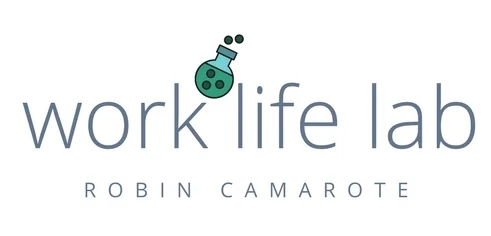Pitfalls of Traditional Goal-Setting
SMART goals are clear and prescriptive. I’m sure you’ve been through one of these exercises at work, you know, Specific, Measurable, Attainable, Relevant, and Timebound. SMART goals are clean and tidy with no little ambiguity. To set SMART goals, you research, plan, and execute. Assuming you ever get out of research mode and can keep your momentum up, they can work.
What’s the opposite of a SMART goal? A dumb one?
I don’t think so—though the acronym (and millions of management consultants) would suggest there is only one right way.
The opposite of something specific and measurable is nebulous and unquantifiable. And that feels a bit more like real work and life to me.
Why mention it?
Thinking Forward to 2021
Thankfully, this is the last day of 2020. Even in a year without as much furniture overturned, many of us use this time to think about how we want to arrange our next year. As the future-focused, strategic planning consultant type that I am, I love this time of year—it’s just the bigger version of the first of the month, Mondays, and 9am. We get to zero out the scoreboard and start again.
I started my 2021 goals a couple of weeks ago to imagine a new normal and an escape 2020 for a few hours. As usual, I have things dropped into each of a couple of buckets- health, family, work, etc.
One of those is coaching. I want to coach.
Build My Coaching Business
Through the AU program and hours of practice over the last year, I’ve delighted in this new-to-me professional skill. I’ve found coaching useful to myself and others. And while that might sound uninspiring and underwhelming, that utility provides me a sense of purpose and impact. It’s also a privilege and a challenge to be trusted so deeply.
So, I’m all in. Helping people by building that part of my business is absolutely one of my goals.
However, I don’t yet know exactly what that looks like. Researching the options feels risky in its potential to be a big, fat waste of time. When I’m starting something new (and a little scary), the uncertainty at the beginning is distracting. It becomes a way to hide- to avoid doing real work until I feel more sure. Potential delays aside, attempting to plan with any specificity would require layering assumptions on assumptions about who, what, when, and how much.
A Different Approach
Instead, I’m trying something else. I committed to the end- to help people through coaching.
That commitment requires continual motion in that direction. It’s head up, eyes open scanning for that next handhold I can use to pull myself through. It’s navigating by the night sky instead of with a map.
So, my plan won’t look SMART. I’ll write stuff down because that’s part of my journaling practice. But it’ll be mostly opportunistic-- week to week, day to day, one shift and turn at a time.
How will I know if I’m making progress? I’ll reflect and note how coach-y I’m feeling. This work is as much becoming (who we are) as it is serving and performing (what we do.)
What have you been wanting to do without knowing where to start?







































































